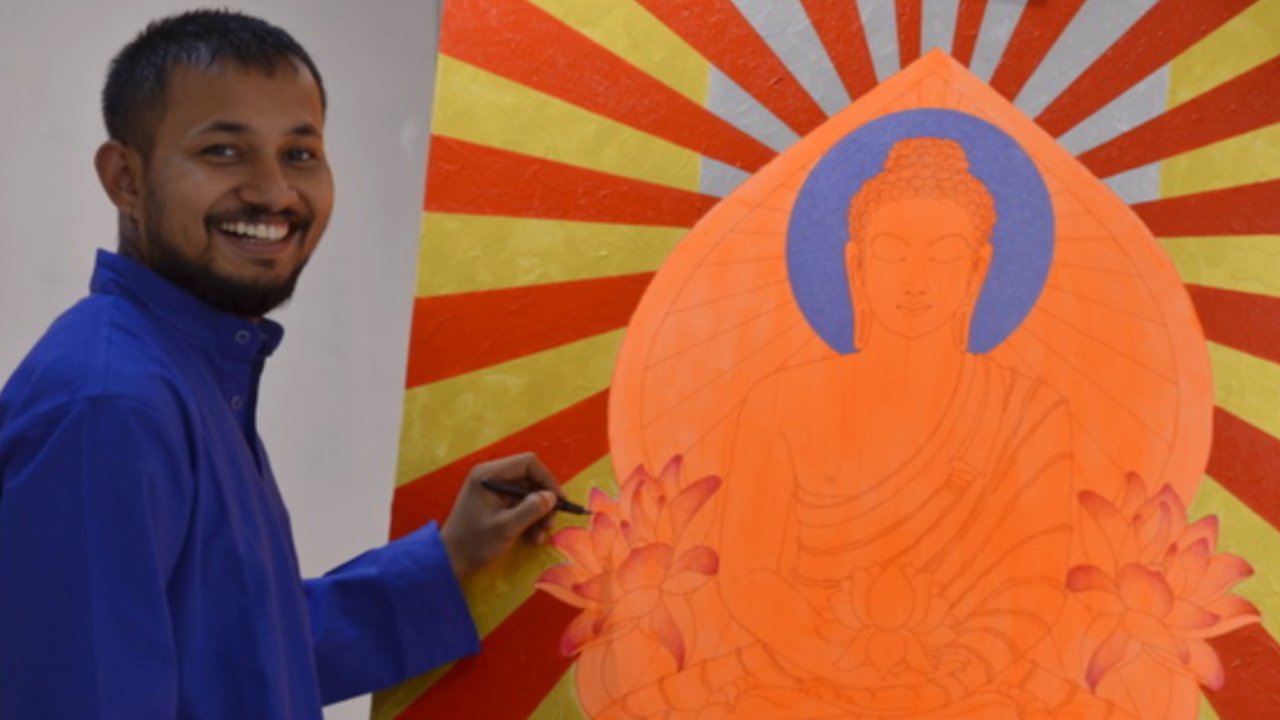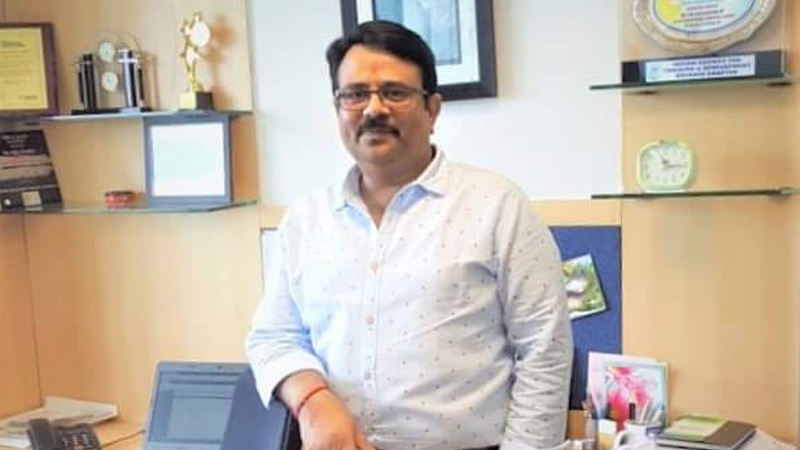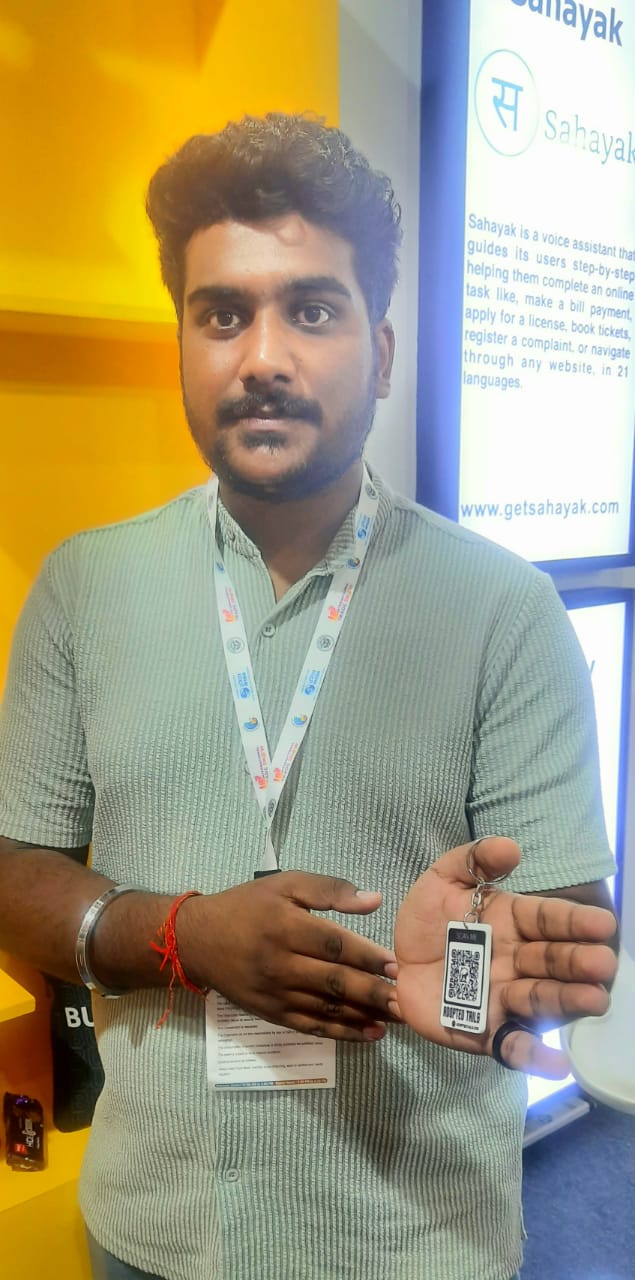Creative Business Group (CBG) stands out as one of Bangladesh’s foremost conglomerates. Renowned for its pioneering work in ICT-based training, solutions, and services, CBG is actively shaping a skilled workforce to meet the demands of the Fourth Industrial Revolution. With a rich 15-year history of excellence, CBG holds the top position in the country’s ICT sector.
The group’s success stems from its commitment to cultivating skilled professionals, unwavering dedication to quality services, and fostering strong relationships with both clients and employees. Presently, Creative Business Group comprises over 13 sister concerns, each specializing in various services, showcasing substantial growth in human resource development, value creation, and service expansion over the years.
During an exclusive interaction with The Interview World, Zia Uddin Mahmud, the Chief Operating Officer of Creative Business Group, which received the “Best Skill Training Institution in South Asia” award at the recent National Conference on Innovation and Entrepreneurship & Startup Summit held at IIT Delhi, sheds light on CBG’s training programs in Bangladesh, emphasizing the difference in employability levels before and after skill development. Additionally, he elaborated on the initiatives undertaken by the Bangladesh government to enhance skill development in the digital era. Here are the key takeaways from his interview.
Q: What types of skill training programs does Creative Business Group provide in Bangladesh?
A: Situated within the dynamic landscape of the Creative Business Group in Bangladesh, our IT institute has been at the forefront of nurturing creativity and innovation in the realm of technology. For over 15 years, we have dedicated ourselves to equipping both professionals and students with the necessary IT skills to thrive in today’s rapidly evolving global market. Our commitment to excellence has empowered countless individuals, enabling them to secure positions within prestigious global companies.
Recognizing the ever-widening gap in skills among students and professionals, we have undertaken the crucial task of bridging this disparity. In a world where freelancing has become a cornerstone of the digital economy, our workforce must possess the skills demanded by the global market. Bangladesh, despite its burgeoning population, faces a mismatch between available talent and job requirements. Therefore, our mission extends beyond mere education; we strive to empower our students with skills that transcend geographical boundaries, ensuring their competitiveness in the global arena.
The impact of our efforts is evident in the growing number of Bangladeshi freelancers who are actively contributing to projects worldwide, with approximately 500,000 currently engaged in the global market. However, our aspirations extend beyond individual success stories. We envision a Bangladesh that thrives in the digital age, propelled by a workforce equipped with cutting-edge skills and a mindset geared towards innovation.
To realize this vision, we actively seek collaborations with likeminded partners, such as India, renowned for its academic excellence and vibrant startup ecosystem. By leveraging the strengths of each other’s institutions and fostering a culture of collaboration, we aim to usher in a new era of technological advancement and economic prosperity for both nations.
Q: What courses does your institution offer, and what are the outcomes in terms of upskilling?
A: Essentially, our focus lies in offering a range of techno-business courses, covering frontier technology, AI, machine learning, cloud technology, and web technology. These courses cater primarily to diploma programs and individuals seeking to enhance their careers. They provide opportunities for participants to tap into the global freelance market, with some venturing into entrepreneurship.
Over the past 15 years, our institution has seen over 70,000 students graduate, with more than 15,000 of them now successfully running their own businesses. Additionally, over 70% of our alumni are actively engaged in freelance work, including a notable presence of women entrepreneurs.
Our initiatives align closely with the Sustainable Development Goals (SDGs), particularly in addressing unemployment challenges. In Bangladesh, where nearly 29% of the population is under 15 years old, investing in their education and skill development is crucial for the country’s future and their integration into the global community.
At Creative Business Group, our goal is to equip these young individuals with the necessary techno-business skills to thrive in the global arena. We are actively seeking collaborations with esteemed institutions like the Indian Institutes of Technology (IITs) to further enhance our offerings and impact.
Q: How do you see the variance in employability levels in pre-skilling and post-skilling?
A: Pre-skilling, the process of acquiring necessary skills before entering the job market, is an issue of growing concern. Many individuals pursuing employment opportunities often find themselves ill-prepared for the demands of their chosen careers. It is a common scenario where individuals enter the workforce only to realize the need for further skill development once they are already employed. This trend highlights a significant gap in awareness and preparedness for pre-employment requirements.
The focus tends to shift towards upskilling after individuals have secured a job, leaving pre-skilling efforts overlooked. However, there is a critical need to raise awareness about the importance of pre-employment upskilling. Students at academic levels, including those in graduation programs or at entry-level positions, stand to gain immensely from understanding the projected industry trends for the coming years. This understanding equips them with a competitive edge as they navigate their career paths.
Currently, there appears to be a lack of emphasis on fostering pre-skilling awareness. To address this issue effectively, there must be increased collaboration among educational institutions, employers, and policymakers. By prioritizing pre-skilling initiatives, individuals can enter the workforce better equipped to meet the evolving demands of their chosen fields. Therefore, while post-skill development remains important, investing in pre-skilling efforts is essential for ensuring a skilled and competitive workforce.
Q: What specific initiatives is the Bangladesh government implementing to address this issue?
A: The Bangladesh government is actively engaged in advancing the nation’s development through the Smart Bangladesh initiative. Collaborating with various agencies, it focuses on empowering students by offering free sessions for technological advancement and organizing hackathons. One pivotal agency, A2 or Aspire to Innovate under the ICT Division and the Cabinet Division, supported by UNDP, plays a crucial role in driving the Digital Bangladesh agenda and achieving the nation’s goal of becoming a developed country by 2041, aligned with the 2030 Sustainable Development Goals.
Looking ahead to 2024, the government is particularly focused on the Smart Bangladesh vision, emphasizing smart citizens, smart cities, and a smart economy. To realize this vision, efforts are underway to nurture smart citizens through curriculum updates, technological advancements, and fostering an environment conducive to learning about frontier technologies, innovation, and startups. Additionally, the government is actively encouraging investment and global engagement to enhance opportunities for Bangladeshi students. This comprehensive approach is yielding positive results, and we are proud to contribute to this significant initiative.
Q: What intergovernmental programs or collaborations exist between the Government of India and the Government of Bangladesh to promote skill development?
A: India has long stood as a steadfast ally of Bangladesh since the liberation war, a fact that fills us with pride. Currently, numerous intergovernmental relations are flourishing. In Calcutta, a forthcoming program, including an academic exhibition, is on the horizon. Concurrently, various exhibitions, startup summits, and events are underway. Notably, a judge from Shark Tank fame recently graced Bangladesh with a speech. This underscores the robust exchange of ideas and innovation between India and Bangladesh. However, there remains ample opportunity for further collaboration, both for countries and private entities like ours. We eagerly anticipate engaging with numerous governments and private institutions in the future.









